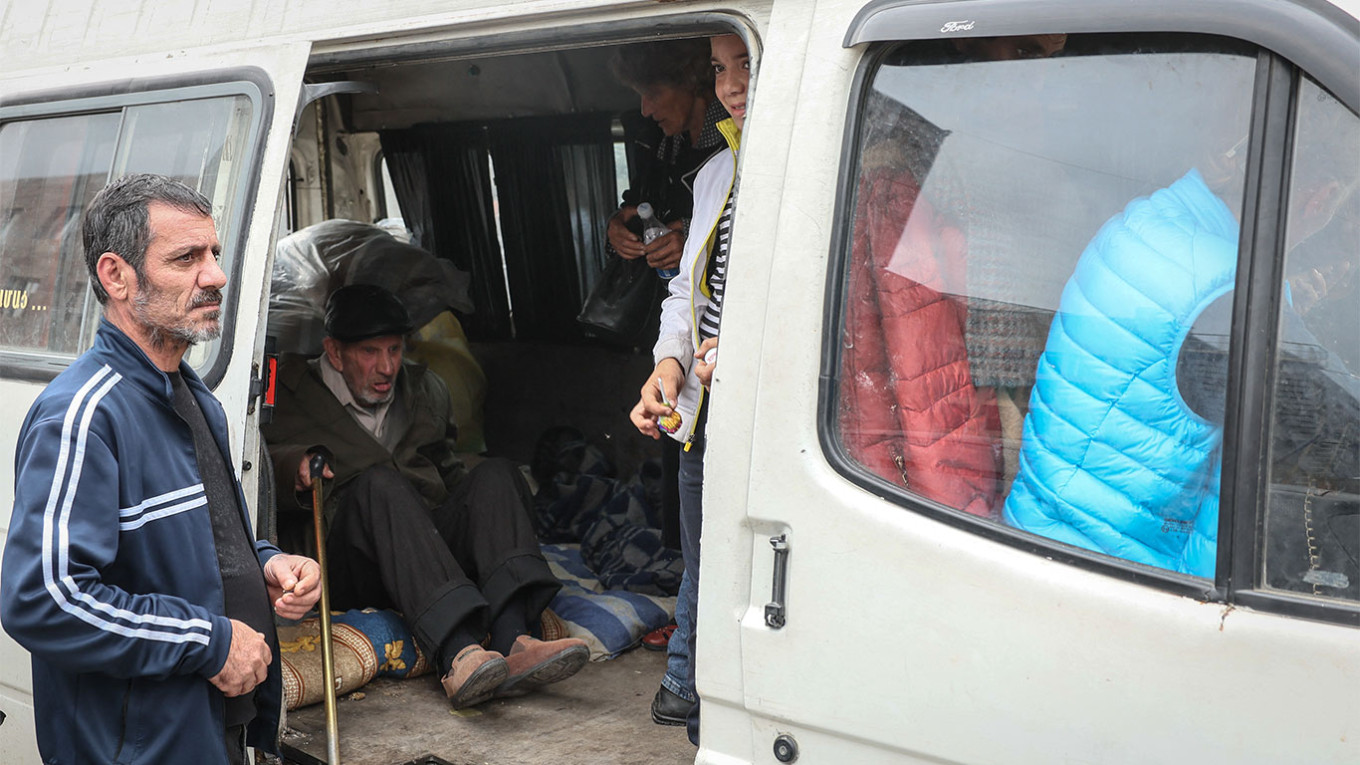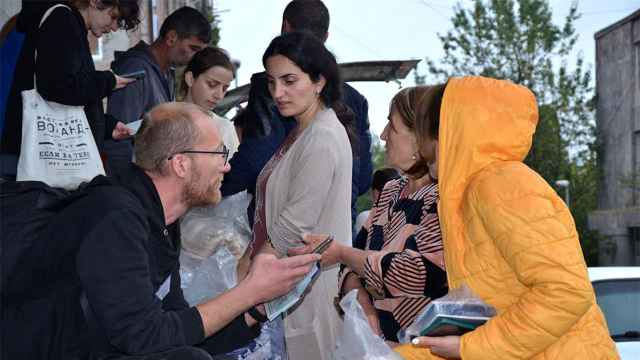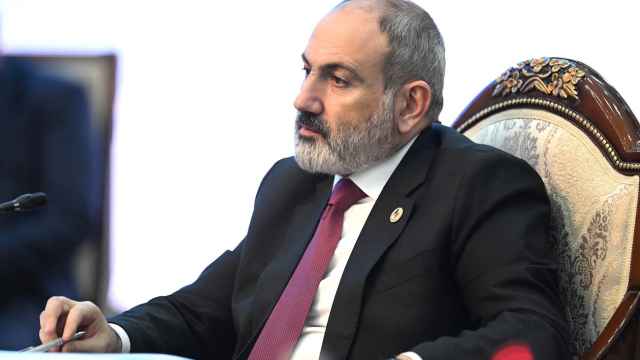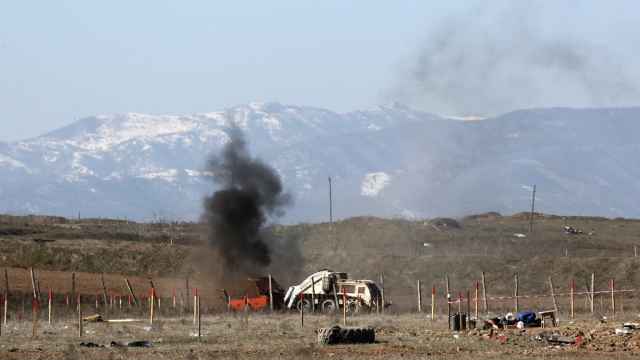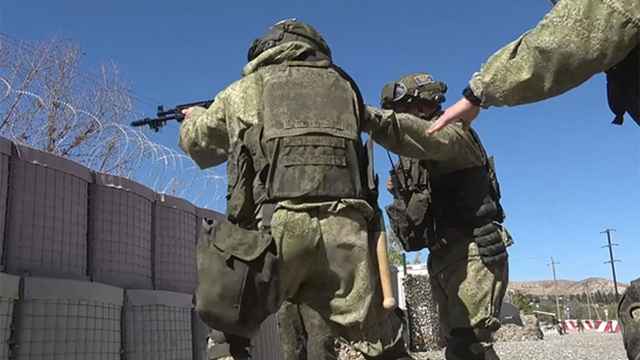“My entire life is packed in this one suitcase,” a man said as he boarded a minivan from Goris, southern Armenia, to the capital Yerevan amid the mass exodus of the ethnic Armenian population from Nagorno-Karabakh.
The man, 70-year-old Armen from Stepanakert, who had just arrived in Goris, shared his last days in Karabakh and future plans with the minibus driver. After a 90-kilometer journey lasting 30 hours due to a traffic jam of fleeing cars, he was en route to the Armenian capital.
However, Yerevan was not his final destination. In two days, he would arrive in Moscow to reunite with his daughter.
“Do I need Moscow?” he asked the driver before answering his own question: “Certainly not. I am leaving for Moscow to be with my daughter in my final days.”
Over 100,000 ethnic Armenians were uprooted by Azerbaijan’s swift takeover of the breakaway enclave of Nagorno-Karabakh last fall. The seizure soured ties between Yerevan and its longtime security guarantor Moscow, whose peacekeepers did little to intervene.
But rather than settle in Armenia, many of the Karabakh evacuees have chosen Russia as their final destination, driven by family bonds and connections as well as economic realities.
According to former Nagorno-Karabakh state minister Artak Beglaryan, about 10,000 of the displaced Karabakh Armenians had left Armenia by mid-October and settled abroad. Many chose Russia due to personal ties and familiarity with the country.
No further data has been published on the displaced population’s departure from Armenia.
During an Oct. 23 cabinet session, Armenian Prime Minister Nikol Pashinyan said that there was no significant immigration among people forcibly displaced from Karabakh compared to the initial months after displacement.
A displaced war veteran leaving for Russia
Gagik Khachatryan, 49, is from the village of Chartar in Karabakh’s Martuni region. He is among the displaced Armenians who decided to head to Russia as soon as possible.
"I just don’t see any other way," he said, pointing to the lack of housing and work opportunities in Armenia.
Gagik is a veteran of the first Karabakh war in 1992, having defended his hometown Martuni when he was just 18. After he was seriously injured in the war, he underwent therapy sessions at the Zinvori Tun rehabilitation center in Yerevan, which hosted him again three decades later after he lost his home and had nowhere to live.
Soon after arriving in Armenia proper, Karabakh evacuees discovered that local rents and the cost of living had surged after the 2022 influx of Russian migrants — complicating their decision-making regarding their future.
To assist the refugee population, the Armenian government created a "temporary protected status" for displaced persons from Nagorno-Karabakh. Individuals in Armenia or abroad whose last registered address was in Nagorno-Karabakh are eligible for this status.
Gagik was provided with a hotel room in the town of Abovyan not far from Yerevan.
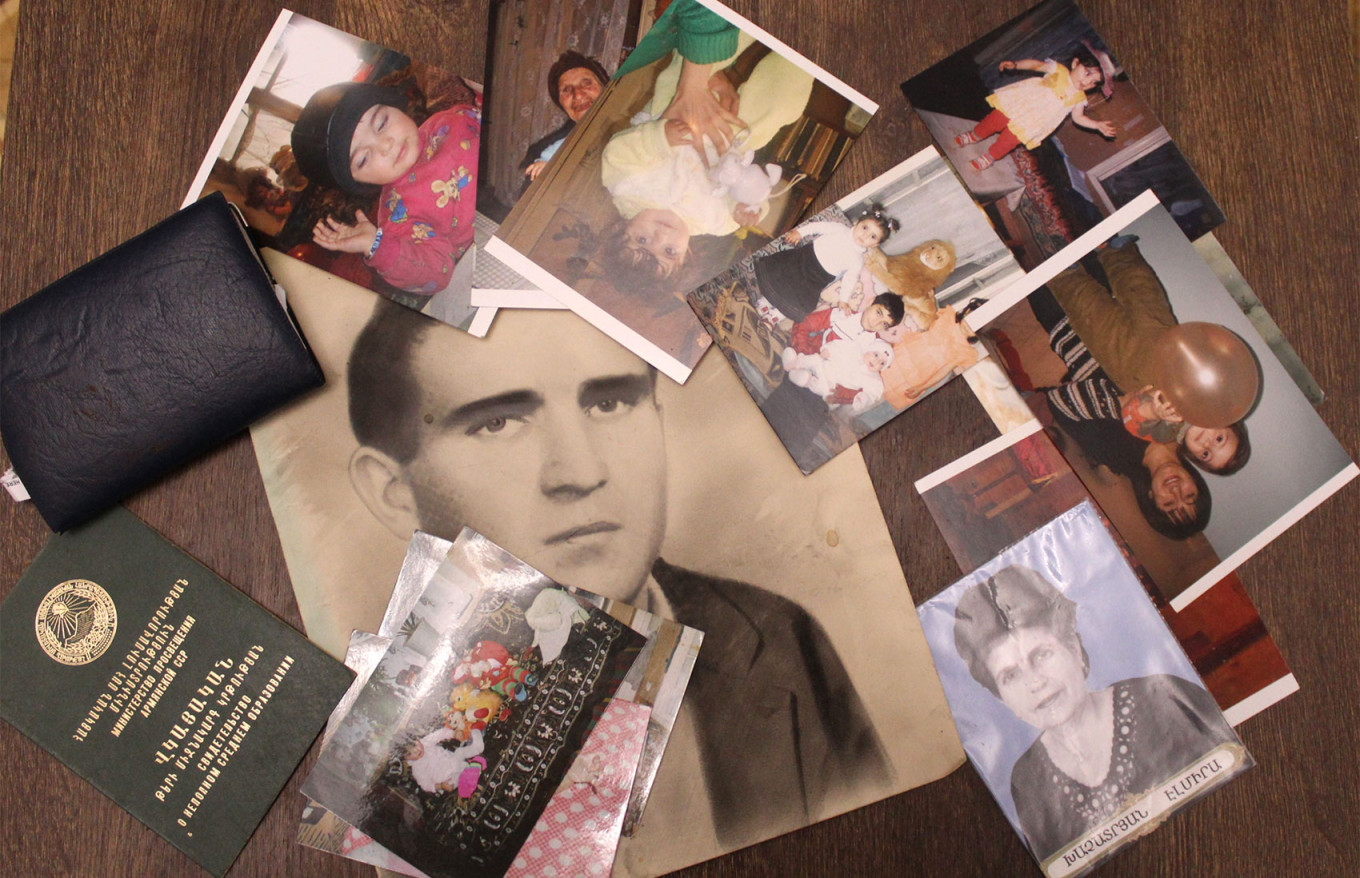
Another option offered by the government is obtaining Armenian citizenship. Many, like Gagik, always assumed they were citizens of Armenia, as they hold Armenian passports.
The only thing stopping Gagik from leaving earlier was problems with his documents. Amid the chaos and uncertainty, he had left behind his documents, along with his car and other belongings, in Chartar. His driver's license and lost birth certificate needed to be renewed.
What Gagik found most important to bring with him was the soil from the tombs of his loved ones — his father and grandparents.
"I hope to create a small tomb for them wherever I settle, as I want to have a part of them close to me wherever I go," he explained. He displayed the rest of the belongings he managed to bring: photos of loved ones, certificates of ownership of his newly renovated house, and some winter clothes.
"That’s all I could fit in this one suitcase," he smiled. "Even these clothes I’m wearing now were provided at the rehabilitation center where I initially stayed for three weeks."
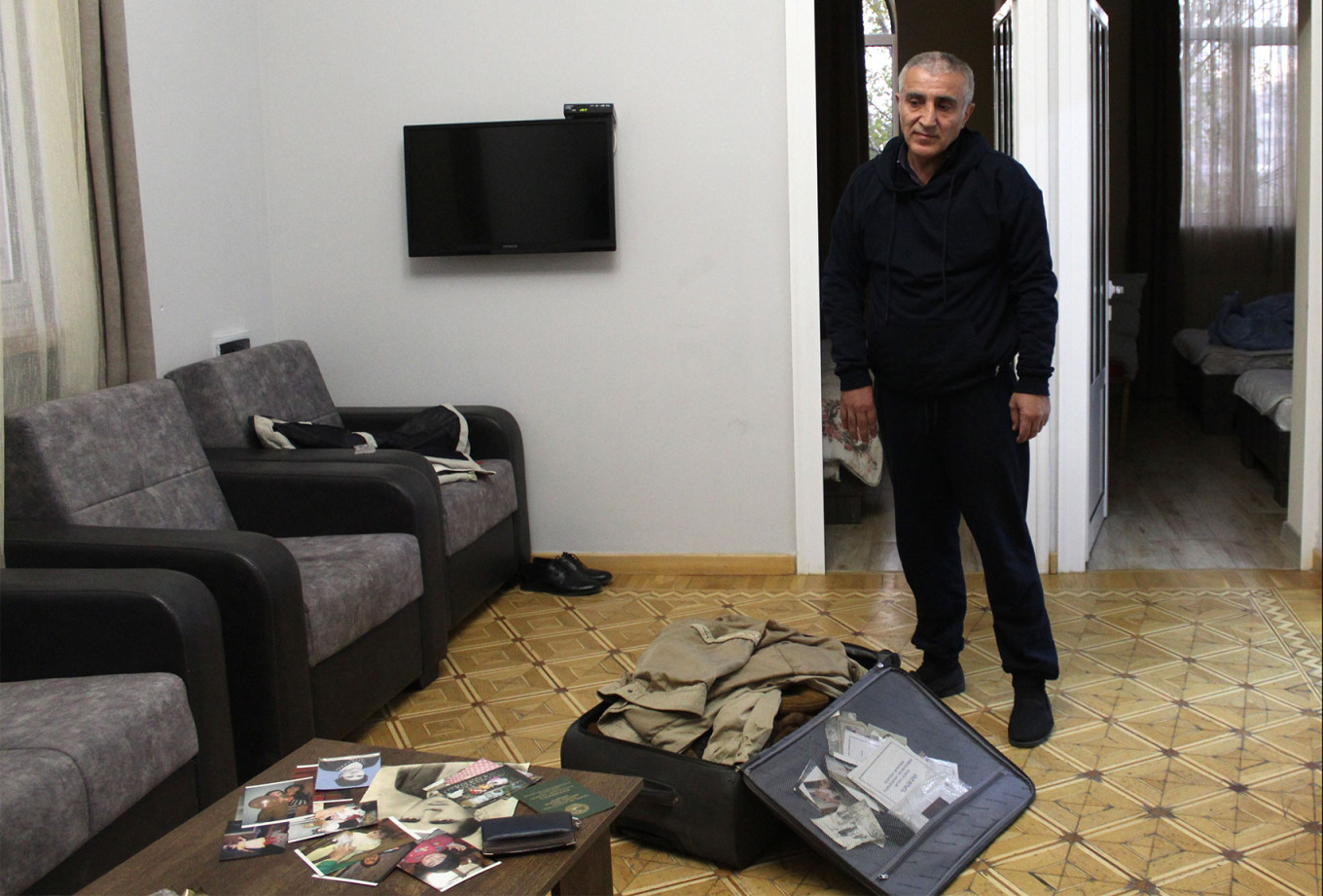
In Russia, where his mother and sisters settled long ago, he plans to work in agriculture and grow vegetables for a living.
When asked if he had any fears about moving to a country at war given Russia's war in Ukraine, Gagik replied: "War follows me everywhere. A conflict erupted in Armenia as we arrived in Jermuk [a border town in southern Armenia] with my daughter in September 2022.
“In the morning, we saw only Karabakh Armenians were still there in Jermuk, together with the employees. Even my 17-year-old daughter wasn’t scared. We’re used to it.”
He hopes to start a new life in a village near Moscow and bring his daughters, who currently live with his ex-wife, to Russia as well.
"We have nothing here, no home, no work. I think life will be better for us there."
Displacement and loss
"We decided to go to Russia very hastily, in just a few days," said Astghik Hayrapetyan, 30, a single mother from the village of Khnatsakh in Askeran, Nagorno-Karabakh. She lost her husband, Sergei, to a heart attack in May 2023.
She and her two daughters, aged 2 and 6, left Armenia on Nov. 8. They have settled down in Mikhailovsk, a town in the Stavropol region where her uncle resides. With support from her relatives, Hayrapetyan hopes to find a job to provide for her family.
"Many Karabakh Armenians have moved to Russia to work and get back on their feet. I know five families of friends who are spread all over Russia — Krasnodar, Pyatigorsk, Stavropol, and many more cities," she said.
She also recounted multiple instances when fathers of families sought job opportunities in Russia due to insufficient wages in Armenia.
"I found a job offering only 80,000 drams ($200), while most apartments in Yerevan are priced [starting at] around 250,000 drams ($600)," Astghik told us.
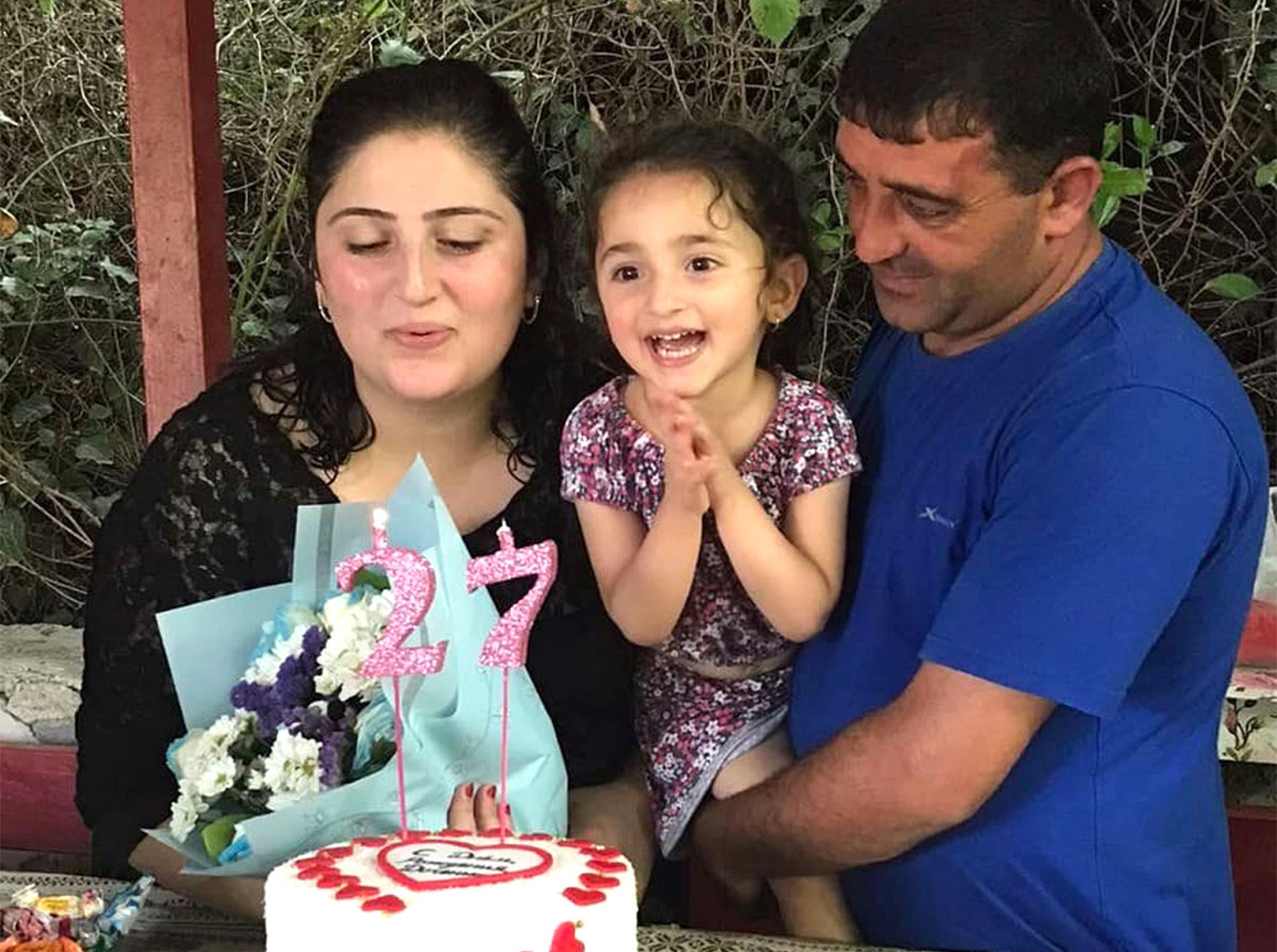
The Armenian government provided support for Karabakh Armenians through a one-time payment of 100,000 drams ($250) per person, which her younger daughter didn’t receive due to issues with her registration address.
Moreover, the government is offering monthly assistance of 40,000 drams ($100) to cover accommodation costs, with an additional 10,000 drams ($25) allocated for utility expenses per individual, a duration of six months.
"I couldn’t obtain the military pension for my late husband; there was no clarity on whether or when we would receive it. I got tired of it all and decided to leave with my brothers and their families," she recalled.
Astghik said her older daughter doesn’t want to go to school in Russia.
"She misses Karabakh, our dialect, and doesn't want to learn a new language," she says.
Nonetheless, Astghik tries to hold onto the hope that one day she will return to Nagorno-Karabakh, which Armenians call Artsakh.
"Residing outside of Armenia distances us even more from the possibility of ever returning to Artsakh."
A Message from The Moscow Times:
Dear readers,
We are facing unprecedented challenges. Russia's Prosecutor General's Office has designated The Moscow Times as an "undesirable" organization, criminalizing our work and putting our staff at risk of prosecution. This follows our earlier unjust labeling as a "foreign agent."
These actions are direct attempts to silence independent journalism in Russia. The authorities claim our work "discredits the decisions of the Russian leadership." We see things differently: we strive to provide accurate, unbiased reporting on Russia.
We, the journalists of The Moscow Times, refuse to be silenced. But to continue our work, we need your help.
Your support, no matter how small, makes a world of difference. If you can, please support us monthly starting from just $2. It's quick to set up, and every contribution makes a significant impact.
By supporting The Moscow Times, you're defending open, independent journalism in the face of repression. Thank you for standing with us.
Remind me later.


